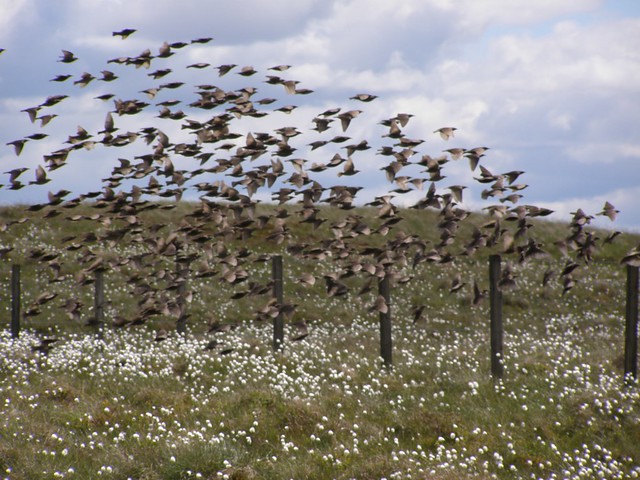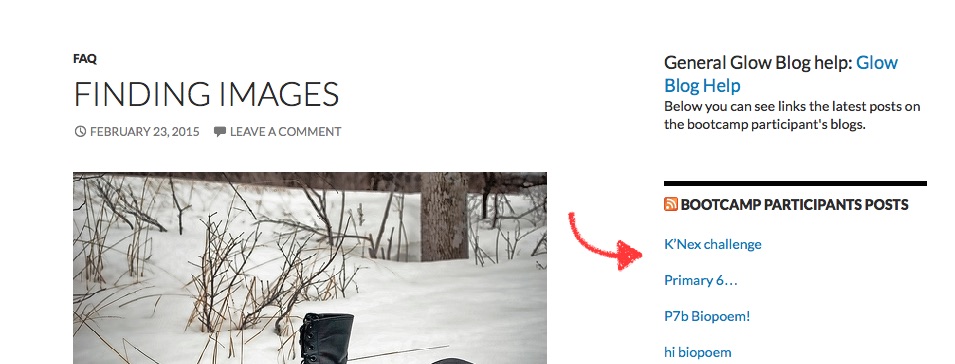
It's ten years today since I wrote my first blog post for me, and I wish we could have today's thinking with the space and time of a decade ago.
1999
I've blogged since around November 1999, one of the first users of a new, shaky service... Blogger. My first one was, as a student teacher, some kind of "making sense of Scottish education" affair. It was short-lived, audience-free, and felt presumptuous in the extreme. As a French and German teacher, I used the more stable Typepad service to run blogs with students on all sorts of field trips and school partnerships.
Early 2000s
There were various Paris-Normandy trips, the highlight of my teaching year, where we live-blogged from a Nokia 6230i with a 1.3megapixel inbuilt camera and extortionately expensive and unreliable 2G connection, while munching on smelly cheese and exploring the history of Omaha beach and surrounds. In the early years, mums and dads were sceptical of what it was for and why - most posts would garner barely 30 comments. Just one year on, though, the utility of the blog was clear to all: no more nervous phone calls to the school asking how we Johnny was doing, and literally hundreds of comments per blog. In fact, I've just spent the weekend at a wedding where I met many of the students from the 2005 blog for the first time since then.
Carol Fuller, a US teacher from South Cobb, near Atlanta, who I have never met, but to whom my primary school colleague John Johnston paid a visit over a decade ago, is still an online friend today. She got her students helping in a couple of projects where a US perspective on the world was essential to gain empathy beyond the pages of the textbook. The most popular post in one collaboration on politics was by far around banning guns. Plus ça change...
Her students took the often traumatic and insightful writing of our senior students' field trip blog to Auschwitz and wrote their own play on the back of it. It was pre-YouTube, so VHS cassettes flew across the Atlantic. Having the powerful writing of students still online, still being downloaded, feels important today as our world continues to struggle with terrible things happening in the world, viewed only through a screen. Laura Womersley's Confession is still one of the best pieces of writing I think I've ever read from a student, rendered more poignant than ever today knowing that just a few months later she died, suddenly, from an unexpected illness. Her words live on.
We used our blogs to publish the first high school podcast in Europe, maybe in the world. The wee lad who edited everything is now an accident and emergency doctor, and through micro-blogging - Twitter - is newly in touch with me this past year. He's no long a wee lad, either - six foot tall, and seeking his next challenges in life.
2005: the start of edu.blogs.com
It was only when I left my classroom to start a secondment with the Government, in the summer of 2005, that I knew I would miss sharing with other people. Until that point, it had always been through the conduit of my students' work. Now, I wanted to share whatever I might with a newly emergent group of educators, educators who wanted to share beyond their four walls. The first post was awkward (and indeed called "That awkward first post"). The early posts are bum-clenchingly naïve. But it was also the place that some small things were kicked off, and became big things. A few weeks after the first ScotEduBlogsMeetup, TeachMeet was born in a post in 2006.
Collisions
Early on, Loïc Lemeur, the founder of the blog platform I had been using for so long, invited me to speak at his emergent Les Blogs conference in Paris (now Europe's must-go-to tech conference, LeWeb). It's his birthday today, the day that I started my own blog - serendipity perhaps?
What followed my intervention there was the first sign that people might actually be reading and listening to what I was saying. James Farmer got stuck in, annoyed, I think, that a young buck was on the stage talking about classroom blogging (and he wasn't ;-). He was actually complaining about what everyone else on the panel had said, not what I contributed, which were just stories (much the same I what I try to contribute today). We didn't speak much after that, in spite of promises of beer in Brissie.
I was fed up at how few teachers were sharing long-form thoughts and reflections on teaching, through blogs, and how a self-nominated cabal hectored those of us joining the fray "for not doing it right". Today, I feel that about the self-nominated if-Hattie-didn't-say-it-it-didn't-happen brigade. Back then my chief supporter in the collision with James Farmer and, later, Stephen Downes, was one Peter Ford - still one of my best buddies today, and working partner of the last three years. Collisions, I learned early on, are how we challenge ourselves to learn better. Heck, even Stephen came around to like something I did once... one of the best presentations he's ever heard. The content of it, too, came from collisions on this here blog.
I also had collisions through the blog with people who did not blog, namely my employers at the Scottish Government. I spent a few blog posts correcting newspaper stories in which I was misquoted, and many more writing my own thoughts on why the creation of a national schools intranet, a social network no-one outside schools could see, was doomed to fail. It did. Two years after leaving the education department, I was invited back by a new Education Minister to his expert committee that has overhauled the whole, expensive, useless venture.
So, collisions on the blog were vital to my job, when I had one, and for the creation of NoTosh, my company. For ten years of professional collisions, thank you. I really wish there were more of them in long form.
TLDR has become the norm as educational discourse takes place in machine gun ratatats-à-Twitter. Where once we had comment feeds, dripping ideas, thoughts and disagreement with our ideas each day, we now have a tsunami of detritus in which we must seek out the comments of yore, never connected directly to the original thought that sparked them. Ten years ago, the half-life of an idea, of a discourse, could be as long as a month. Today, one is lucky if a thought lasts twenty seconds before it falls off the fold of the electronic page.
In the past decade, though, something better has come along, I think. More educators are writing books than ever before. More than most genres, there are plenty destined to become pulp, but there are so many more than a decade ago that offer genuine insight, great ideas, years of learning to the reader for no more than thirty bucks. They even come to your screen in a flash, if you want them to. I wonder, sometimes, if teachers writing books is not the long-form blog post in a different guise.
To that end, I've wondered about going back over ten years of blog posts, ignoring the truly embarrassing ones and unpicking the contentious ones with a more mature head on my shoulders. I'd love to write a book that takes ideas that mattered 10 years ago to me, and see whether they might matter more to people today. I have no idea whether this would work, whether it would even be of interest to people - the same questions I asked in my parents' dining room as I set about kicking off this electronic version of the book draft.
Thanks to those of you who have read my stuff, especially the longest posts like this one. Thanks, too, to those with whom I have collided over the last ten years. And to those who don't read my blog any more, who have unsubscribed because you feel it is "no longer relevant" (that's the most common reason for an unsubscribe), peace be with you. You have no idea of the fun you've missed out on ;-)

 but I’d hope that it would be under consideration for Scottish learners and teachers.
but I’d hope that it would be under consideration for Scottish learners and teachers.


